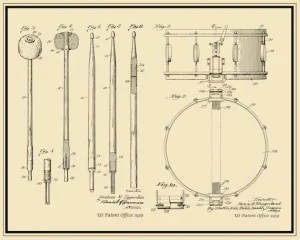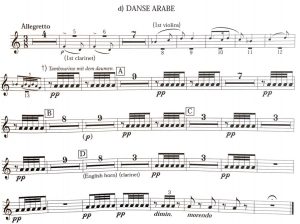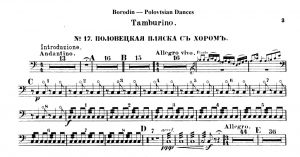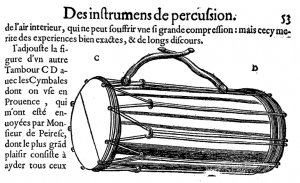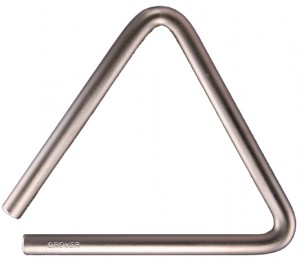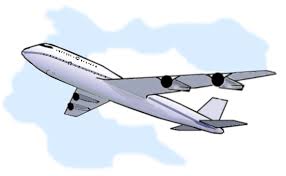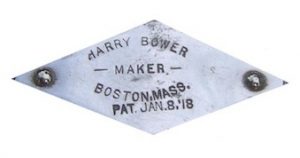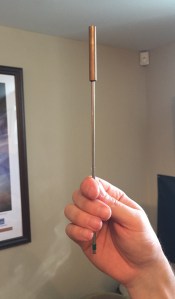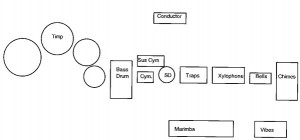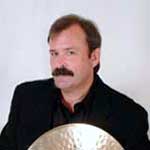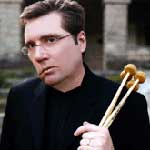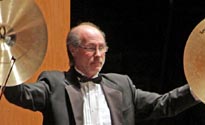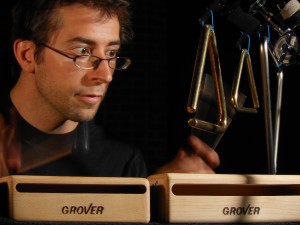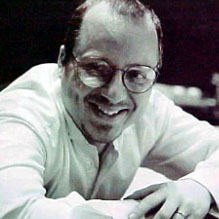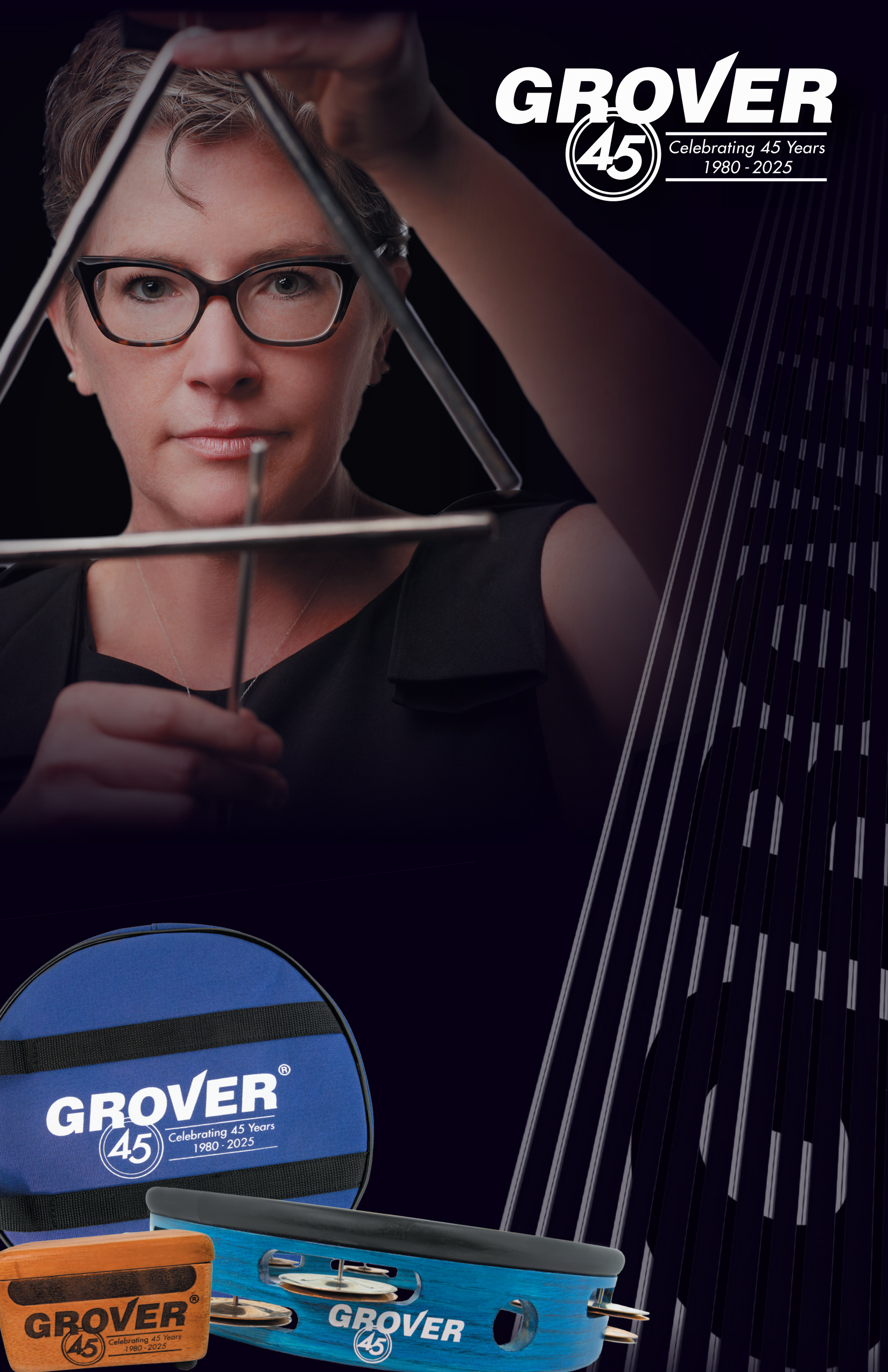by David Valdés
The Practice Blueprint
by Dr. Paul Buyer Have you ever been told by a director, instructor, or section leader that you “need to practice?” This vague statement can often leave students confused, deflated, and discouraged. Instead, what students really need is direction, help, and mentorship on how to practice, so…
Carmina Revealed (Part 2)
CARMINA REVEALED (part 2) Orff wrote the names of the instruments in German in the manuscript (of which I own a copy). He indicated the following: Pauken (5 kessel) Schlagwerk (5 spiele), 2 kleine Trommeln, 1 grosse Tromel,1 Schelle, 1 Triangel, 1 paar Cymbeln, 2…
Carmina Revealed (part 1)
“Carmina Burana” is a tremendously popular work featuring interesting timpani and percussion parts, which make it also a well-liked composition among percussionists. This series of articles will deal with the percussion instruments included in the orchestration, a description of them, clarifications about some obscure indications…
In Search of the Missing (Timpani) Fundamental
The acoustics of timpani, including the art of tuning and clearing timpani heads have long fascinated timpanists. Pro timpanist and percussion scholar Richard K. Jones delves into this intriguing subject in his comprehensive and eye opening webbook, “The Well-Tempered Timpani”. Devoted to understanding the physics of timpani and the…
Tchaikovsky’s “Arabic Dance” – Articulate or Roll?
by David Valdés “The Nutcracker” is a work that, despite being part of the repertoire and being performed/played very often (specially during Christmas), it is played with some mistakes due to a wrong interpretation of the instructions given by Tchaikovsky and the writing that he…
LIEUTENANT KIJÉ AND A PECULIAR TAMBOURINE TECHNIQUE
We all know Prokofiev´s “Lieutenant Kijé” and its overly famous snare drum part, but the tambourine one in the fourth number, “Troika”, tends to go unnoticed. Prokofiev wrote a circle above the first quarter-note of each bar: This is the same notation that Glazunov had…
Prince Igor’s Tambourine Mystery (part 2)
by David Valdés In the previous article we got to know the tambourine part of the “Polovtsian Dances” was written by Glazunov and not by Borodin. We now can pull the thread to try to figure out the meaning of that notation and the technique…
Prince Igor’s Tambourine Mystery (part 1)
by David Valdés TAMBOURINE PART IN “POLOVTSIAN DANCES”: AUTHORSHIP, NOTATION AND TECHNIQUE (PART ONE) “Polovtsian Dances”, by Alexander Borodin, is a suite from his opera “Prince Igor”, a work that remained unfinished when the composer died in 1887. Dances #8 and #17 (taken from the…
Tambour – Which Is It?
THE PROVENCAL DRUM Today we´ll talk about a traditional instrument that has made its way into the symphony orchestra. The drum we are refering to is many centuries old and common to quite a few countries, but its French name (and its similarity to an…
Questions To Ask When Learning A Piece Of Music
Unless you have a) learned all the music there is to learn in this world, or b) chosen that you don’t want to learn any more music in your lifetime, then learning new music is in your future! As an active performer, I’m constantly learning…
The Triangle
The triangle is an idiophonic musical instrument of the percussion family. It is a bar of metal, most usually steel in modern instruments, bent into a triangle shape. One of the angles is left open, with the ends of the bar not quite touching –…
Thoughts From A Department Recital
Dear Music Majors, Let’s discuss recital performance etiquette briefly. Going on stage to perform is an important part of your training as a musician and teacher but is also the culmination of all your hard work in the practice room working at perfecting your craft…
Harmony Central Praises Studio Pro Tambourine!
“You’re reviewing a tambourine? Have you lost it, man?” Yeah, that’s what I was dealing with around the office while wailing away on this tambourine. In the spirit of full disclosure, I was a Percussion Performance Major in college and was schooled in the proper…
How to Travel to an Audition: What to bring and how to get it there!
For percussionists, traveling to auditions can be more challenging than playing the audition. We have to get ourselves, as well as a shopping cart full of gear to the audition, that could be halfway around the world. We are not the only ones that have…
Why are we so out-of-tune?
Good intonation is one of the pillars of musicianship for those of us who play pitched instruments. It’s also an area in which many timpanists struggle; it was one of the major issues which kept applicants from advancing at last year’s DSO timpani/percussion audition, and…
Tips for Moving to a New Country: What Gear to Bring
When I was preparing to move to China to start my new job with the Wuhan Philharmonic, I had a rather large list of concerns. There were the normal hassles of moving to any city, such as securing an apartment, getting phone and Internet set…
Amassing and Choosing the Most Appropriate Sounds
People often ask me, “Why do you have so many tambourines?” Usually this question comes from a non-percussionist. It’s a good question—one that many of us have answered a thousand times. When discussing this topic with colleagues, I often think of an editorial written by…
Setting Goals In Percussion
I recently had a discussion with the percussion studio at Southeastern University regarding goals. I am asking the students to set some goals for themselves and for the studio as a way to better understand their purpose and direction during their time at SEU —…
Boston’s Historic Drum Makers
At the turn of the 20th century, Boston, Massachusetts was the drum building capitol of the world. Nowhere else in America did there exist a city so densely packed with music and musical instrument manufacturers in the early 1900s. Leedy of Indianapolis was the largest…
Career Possibilities: What a Music Degree Doesn’t Tell You
Many music programs across the U.S. continue to perpetuate unrealistic assumptions about being a music performer, while few musicians ever achieve a sustainable income solely from music performance. There are fewer full-time positions for conservatory-trained performers than ever before, as local music organizations continue to…
Taking A College Audition?
College professors will gather as much information about prospective students as possible to determine if the student will be a good fit for their program. For students, the college audition process can be a scary endeavor with a lot of unknowns. The following areas of…
Rob Knopper’s “what to do if you make a mistake in orchestra”
This article originally appeared on robknopper.com what to do if you make a mistake in orchestra my hilarious epic fail on tam-tam happened 7 years ago this month. in 2008 i got into my first major summer festival: pacific music festival in japan. i was 21,…
Technique Improvement and Maintenance: Warm Up Routines – Triangle by Will James
Holding the triangle Holding the triangle should look graceful. We want to at least look professional. Resting the clip on the thumb and middle finger, leaves the other fingers available for muting if necessary. Holding the triangle around eye level is preferred so the audience…
An Organized Percussion Section: The Key To Success by John R. Beck
Getting Organized. We all aspire to it. We know it will make our jobs easier. We know that our students will learn more quickly and become better performers. Then, if we are successful by May, a new group of students shows up the following year…
Preparing for Life as a College Percussion Major by Prof. James Campbell
The college-bound percussionist can face some exciting challenges as they prepare for a professional career. Percussion crosses all musical boundaries and percussion students have the widest possible vocabulary of instruments and musical genres to master – more than any other instrumentalist. Although some students don’t…
The Percussion Section – A Minor Miracle by Joseph Jones
I’m often asked if there are different personalities among musicians who play different instruments. It is an extremely difficult question to answer; after all, it is hard to stop laughing when one is laughing that hard! To explain this to someone who has spent little…
Advice To College Music Students by Michael D’Angelo
I started teaching at the University of North Carolina Wilmington right after finishing my Master’s degree at Indiana University in 2012. While I wasn’t expecting to get back into academia so quick, it was enlightening to get the teacher’s perspective, especially in a smaller school…
Ten Useful Tips For Percussionists
by Dr. John Beckford
Assist your colleagues in striking the stage following a percussion recital — even it you didn’t play. This is common courtesy and will be greatly appreciated when you are the performer. Arrive far enough in advance of a rehearsal to guarantee that all equipment is…
Successfully Show Your Stuff by Grant Dalton
As percussionists we are called on to play countless instruments and their appropriate styles. Here, from Grant Dalton, are six important tips to consider when called on to play a “Broadway” type show: 1. Find out everything that you can about the show that you…
Percussion Playing: Body and Soul by Dan Moore
My percussion program here at the University of Iowa has a tradition of beginning each semester with our own little “convocation,” that sets the tone for the semester. We use it to formalize our goals and get everyone on the same page for how we…
Plan For Success by Jim Dallas
Knowing that many of you may hope to enter the arena as a freelance player sometime in the near future, I have a few suggestions which I hope will improve your chances for success. Although the highest playing levels are necessary to be in a…
Five Hints For Playing Concert Bass Drum by Robert McCormick
Here are some tip for playing bass drum – aka:gran cassa, grosse trommel, grosse caisse Tune the drum as low as possible without sounding flabby. Most people tune the beating head looser than the vibrating head. The important thing to remember is not to set…
A Percussionists Guide To Subbing A Show by David Edricks
As percussionists, one of the most challenging skills to learn is subbing a percussion book for a show. It is a skill set that you must master to be fully prepared for the career challenges that lie ahead. In most situations, you will be expected…
Six Triangle Tips From Chris DeChiara
Always hold the triangle between the music and conductor where you can see both without moving your head. Experiment with different playing areas-and the amount of beater surface-to get the optimal sound for the specific passage. Experiment with different triangles to get the optimal sound…
How to prepare for a first orchestra (or other) rehearsal by Angie Nelson
Prepare your music at home first. Obtain your parts from the orchestra or ensemble that is employing you. Don’t feel bad about bothering a principal percussionist or librarian. It’s their job to get you the music so you have enough time to prepare it thoughtfully.…
Multi-Percussion by Casey Cangelosi
Multi-Percussion is a fantastic musical medium that can invite equal creative energy from both the composer and performer. Below are three ideas I like to be mindful of. Consider what multi-percussion is. The composer is asking you to combine several different percussion instruments to create…
Guest Blog – The Unexpected by Jim Neglia
Referring to one’s brain, we have been told there is a direct correlation between mathematics and music. I would like to expand this finding to the similarities between that of a percussionist and personnel manager. I can hear the sighs now … but wait, educator…
